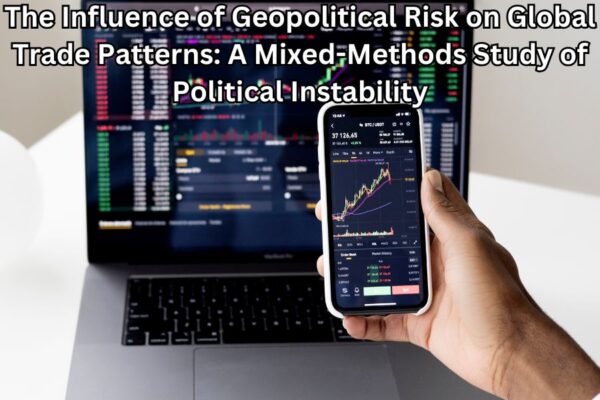Description
The Influence of Geopolitical Risk on Global Trade Patterns: A Mixed-Methods Study of Political Instability
Abstract
This study investigates the influence of geopolitical risk on global trade patterns. Research focuses on political instability that hinders trade. The research examines how conflicts and geopolitical causes will transform international trade. Moreover, it investigates the impact of these variables on trade flows. However, such hazards provide major obstacles in our globalized environment. They frequently cause supply chain interruptions and change trading partners. In addition, the study examines the impact of political instability on decision-making. It takes trade policy into account and the study looks at the wider effects on international trade.
The study used a mixed-approaches methodology and incorporates quantitative analysis. The analysis utilizes trade data and applies indicators of geopolitical risk. Qualitative case studies will supplement this where interviews offer more facts. Businesses are a part of these interviews, and among them are commerce specialists as well. Additionally, policymakers play a role, and research investigates the effects of different occurrences. Moreover, the study describes trade wars to analyze political upheaval. Indeed, the study examines impact on trade volume. For instance, a study investigates supply chains’ geographic reorientation where volatile areas receive particular attention. As a result, the analysis includes parts of Asia.
Furthermore, the findings indicate notable changes, whereas patterns of trade are changed by geopolitical risk. Companies diversify their markets and particularly supply chains are modified. The study emphasizes how political instability affects people and where slowdowns in trade may result from it. It may result in increased expenses and investments have decreased. In unstable areas, these effects are particularly noticeable. Finally, recommendations are sent to governments where strengthening resilience is the aim. Being able to withstand geopolitical threats is essential. In political circumstances that are unpredictable, this is crucial. In summary, it is important to give considerable thought to how geopolitical risk affects international trade patterns.
Read more about the topic
Impact of Geopolitical Risk on International Trade: Evidence from Container Throughputs
Geopolitical Risks (GPRs) and Foreign Direct Investments: A Business Risk Approach
View Other Projects on Global Trade
Exploring the Role of Tariffs and Non-Tariff Barriers in Global Trade: A Multi-Method Study
The Future of Global Trade in the Context of Digital Transformation: A Mixed-Methods Study








Reviews
There are no reviews yet.